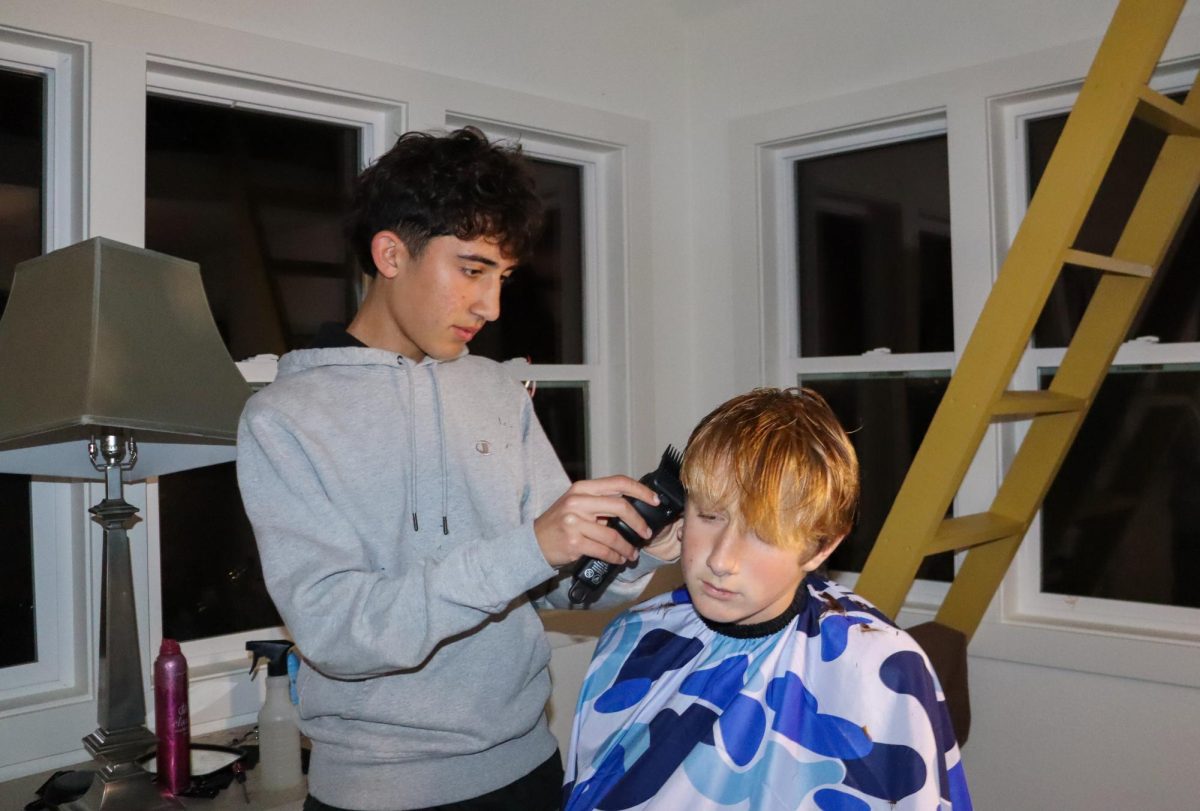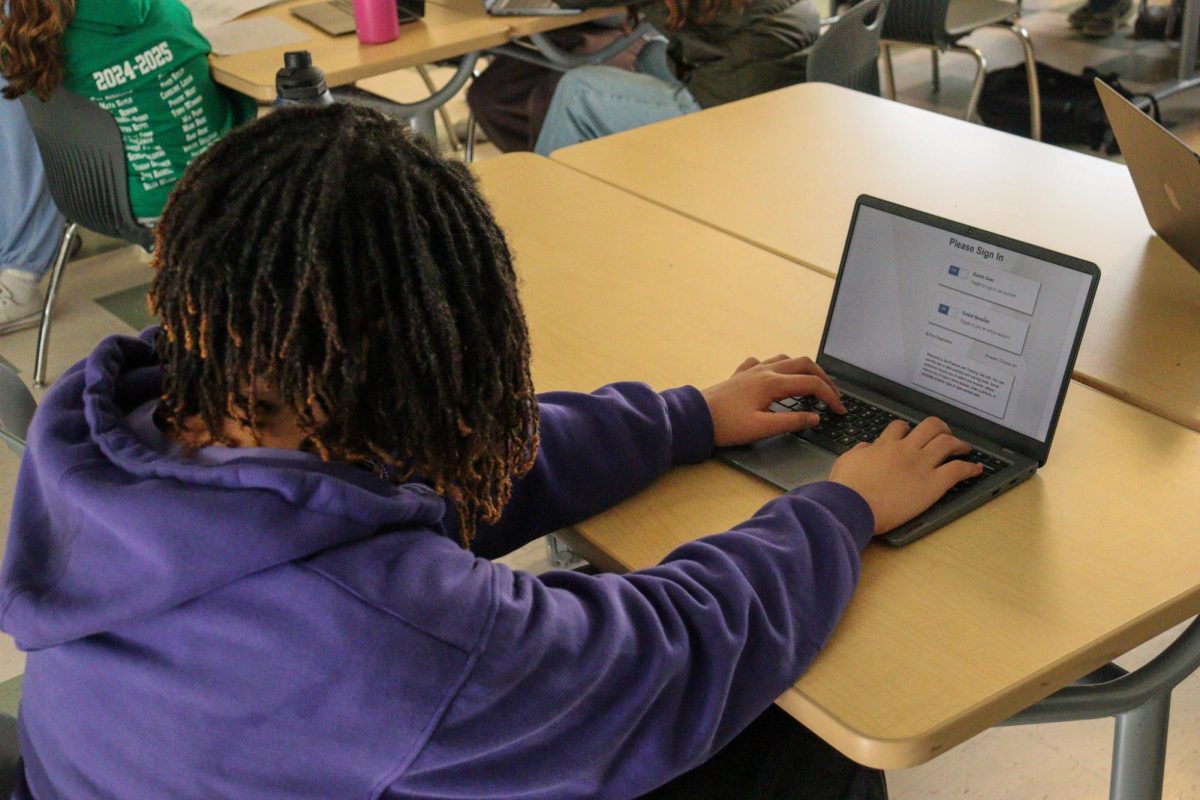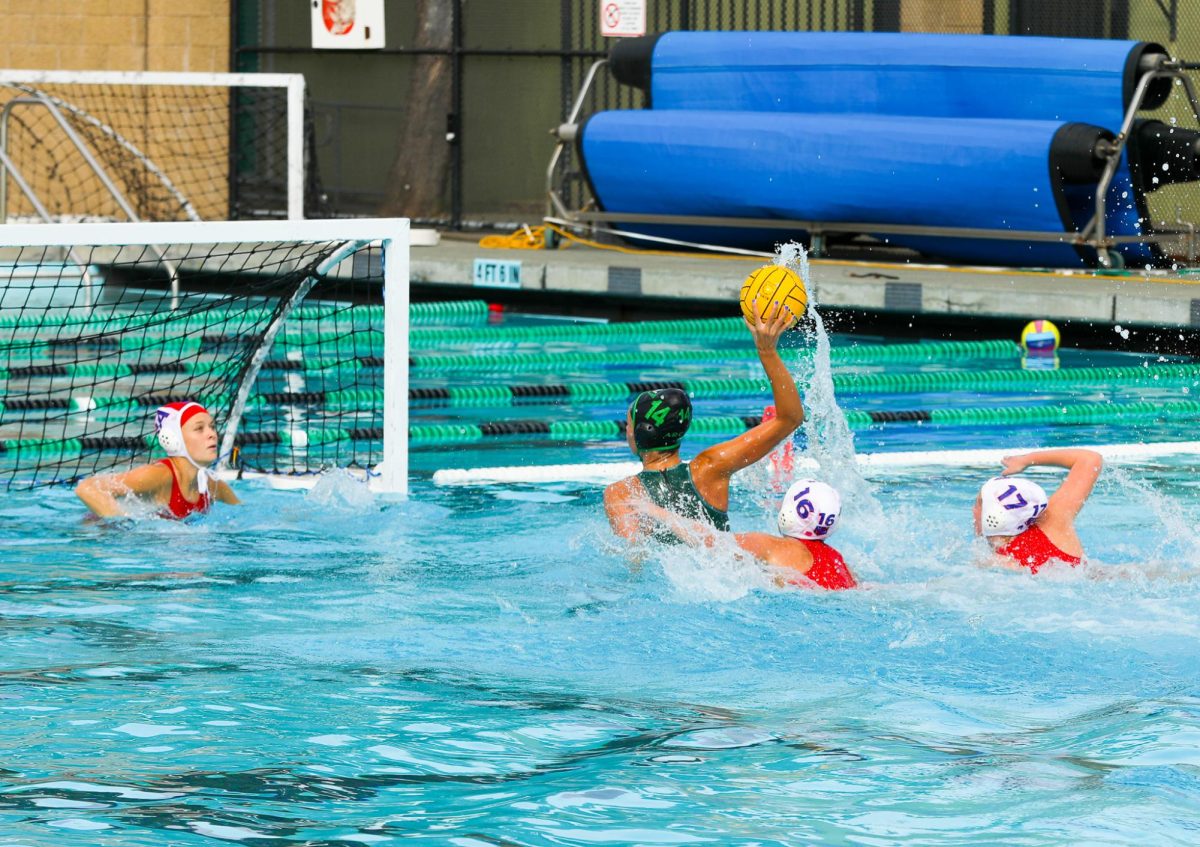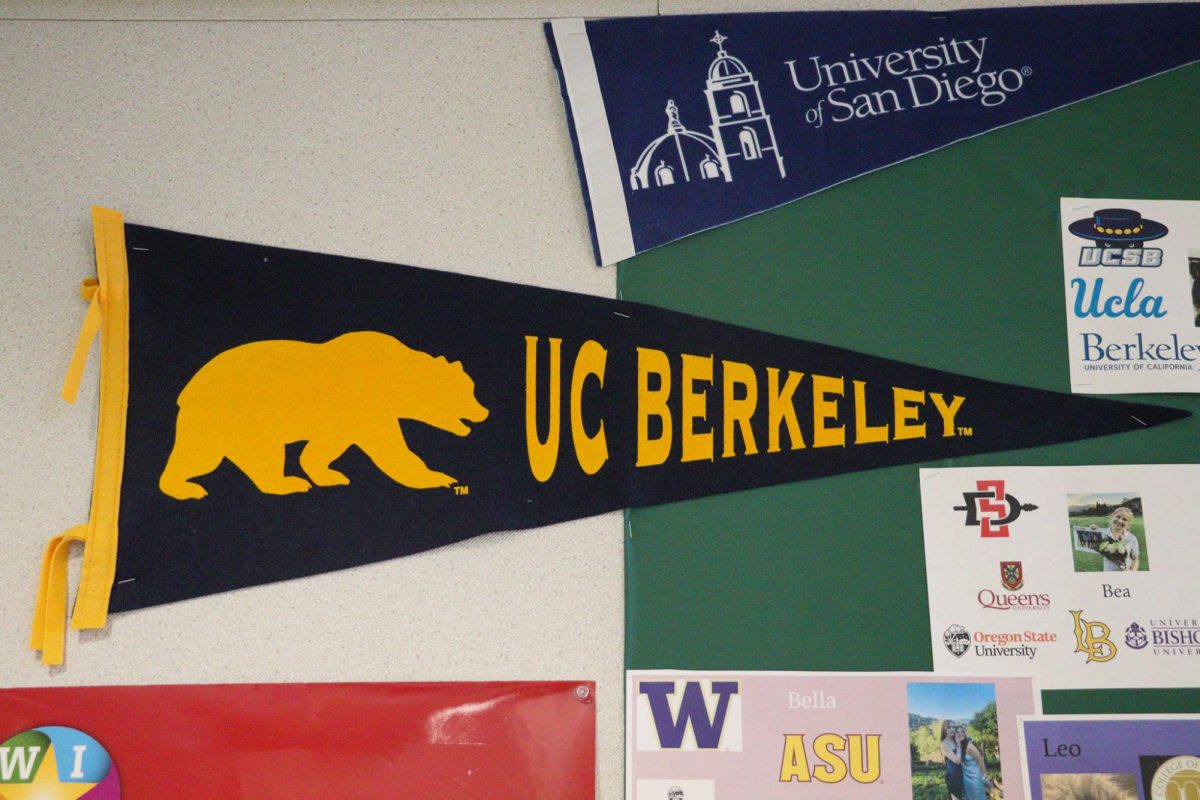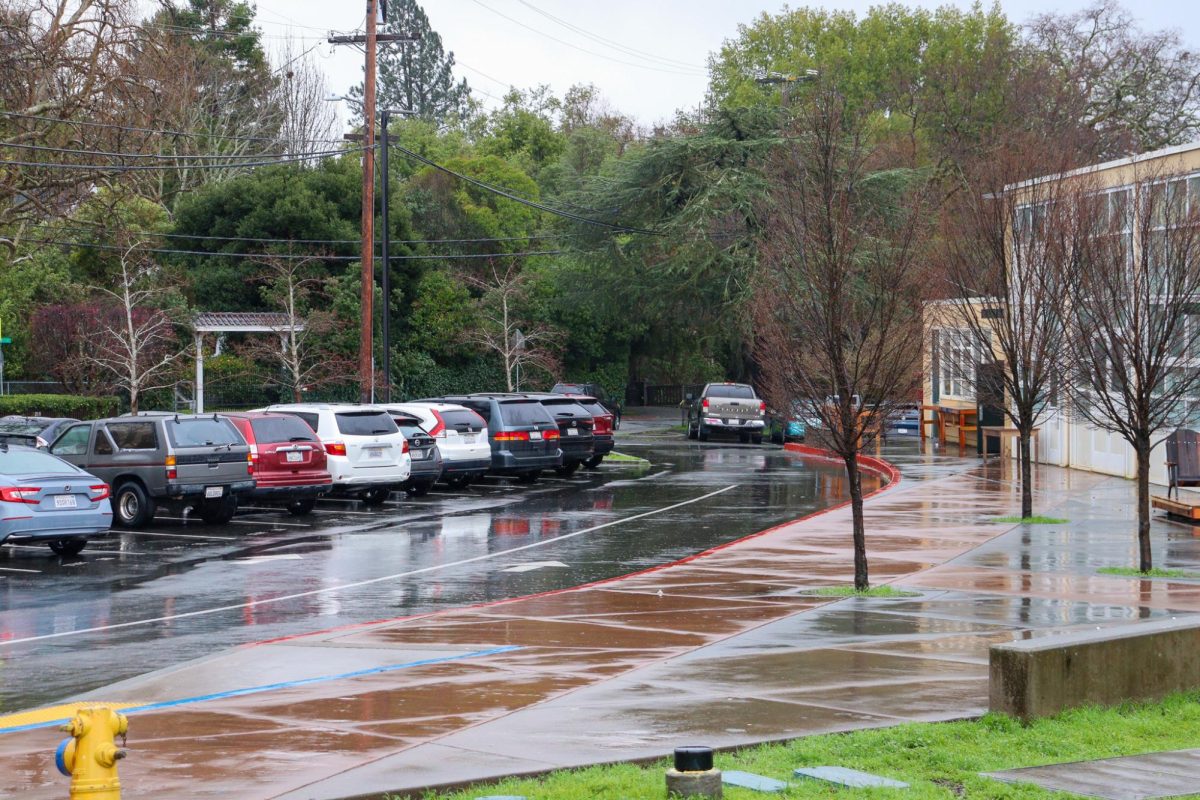In January, the Tamalpais Union High School District (TUHSD) implemented a district-wide phone policy restricting all students’ cell phone access during classes. The policy, still in effect today, requires all teachers to collect student phones at the beginning of class, providing a distraction-free classroom setting. Following positive district-wide educational changes, the TUHSD Board of Trustees considers taking the policy one step further by purchasing Yondr pouches for all students.
Yondr, an American company founded in 2014, aims to provide phone-free spaces within diverse organizations worldwide. According to Yondr, as of March 2024, they have over 3,000 school partners in 21 countries. The company achieves phone-free spaces by requiring users to lock their mobile devices in a pouch, which must be unlocked by a Yondr magnetic unlocking base.
According to TUHSD Superintendent Tara Taupier, purchasing Yondr pouches for TUHSD’s 4,563 students would cost approximately 137,000 dollars, or 20 to 30 dollars per student. The Board’s decision on whether to go through with the purchase depends on the outcome of Measure B, TUHSD’s 289 million dollar bond proposal on the November 5 ballot. Measure B’s main priority is securing funding needed to enhance district-wide safety. With maintenance required on school infrastructure district-wide, this funding is essential to ensuring that the district’s facilities meet modern building codes.
If Measure B passes, Taupier believes that the Board will commit to moving forward with purchasing Yondr pouches and implementing them in January 2025. She expects that establishing completely phone-free schools will inspire further positive educational changes.
“I think our educational hope is that student learning increases, and student engagement with content increases. I think those would be measured by the surveys we put out, like the Youth Truth [Survey] and California Healthy Kids [Survey], but also our grade reports, student [University of California] A-G [required course] completion rates, and we hope to see an improvement in attendance,” Taupier said.
The proposition brings logistical challenges to the table, as it restricts students’ access to their phones for the entire day instead of just during instructional time. At the beginning of the day, students would lock their phones in individual pouches with locking machines installed in each classroom. Instead of teachers collecting phones, students would keep their locked pouches with them for the entire school day. TUHSD has not made a formal announcement to staff, students, or parents about the unlocking of phones for medical reasons, free periods, or other special circumstances.
“I don’t have any reservations [about purchasing the pouches]. I think we need to make sure we think through a lot of the logistics. There’s always things that come up that you haven’t thought of. I’m hoping in the next several weeks and months to meet with staff, parent groups, student groups, and really hear what they have to say,” Taupier said.
Despite the lack of an information release, news about the potential new policy has spread around Archie Williams’ campus, eliciting various responses and concerns from staff and students. Archie Williams Peer Resource, Biomedical Sciences, and Academic Workshop teacher Jenny Brown believes the Yondr proposition goes too far.
“I think that part of our job is to help kids with their self-regulation, and by simply locking things up for the whole day, I don’t think that really helps them,” Brown said. “[The proposition is also complicated] in terms of social and emotional skills. Phones are used for texting people where you’re going to meet for lunch, and, ‘How are you going to get from point A to point B?’”
Brown noticed several positive changes in her classes after the implementation of the original phone policy last January. She found that it increased peer-to-peer engagement and lowered distractions, and that more students began using downtime to play games such as hacky sack with each other. Brown also appreciates the flexibility of the current policy as it allows students to use their phones, with teacher approval, as lab tools or to streamline the use of Canvas.
“As you go through anything in life, you try something out, and you tweak it if it’s not working. But I think [our current policy] is working right now, at least in my view, so I don’t see the need to go to the next level of extreme,” Brown said.
Archie Williams senior Jacob Carrera crafted a petition on Change.org against the proposed policy in August. He aspired to create a platform for the community to share their concerns about the use of Yondr pouches.
“From talking to people from Redwood [High School], [Tamalpais High School], and Archie [Williams], they all think that it’s an invasion of privacy first, and it’s possibly hazardous for [student safety]. I think that there is a [consensus] that it’s a positive thing for teachers to take away our phones during instructional time, but most people think that our school breaks should be used to have a true break,” Jacob said.
Student safety concerns have surfaced surrounding the proposition due to the inability to access one’s phone in case of an emergency. Archie Williams, as well as other schools within the district, are open campuses, allowing students with driver’s licenses to drive to off-campus during lunch. With Yondr pouches, students could carry their phones, but would be unable to use them for Apple Pay, to communicate with their friends, contact a parent, or alert emergency services off-campus. The same issue could arise in the event of an on-campus emergency resulting in lockdown or evacuation.
“We live in a very different world [now]… I have three children that go to this school as well, and I don’t like the idea that in case of an emergency, their phone would be on lockdown as well. That’s just not okay, especially with the [emergencies] that we have to think about these days,” Brown said.
The threat of school violence is ever-prevalent. As of Sept. 13, CNN reports that there have been 49 school shootings so far in 2024, killing 24 people and injuring at least 65. Locally, TUHSD faced a bombing and a separate shooting threat Sept. 13 that prompted a district-wide evacuation and canceled all classes for the day.
The significant cost of the program also concerns community members, especially as the district experiences teacher and class shortages.
“The cost bothers me a lot. [I am] seeing classes not being able to be run because of the [new regulations on] smaller class sizes. Instead [of creating more sections, the district] just cut class periods out and bounced a bunch of kids out of classes, forcing kids to take classes at College of Marin, or online. That amount of money could fund sections of whatever [class] is needed,” Brown said.
TUHSD created Measure B to address outdated facilities, and there are plenty of updates to be made on 60 to 100-year-old school buildings. Jacob believes that the Measure B funds should not be directed towards a purchase of Yondr pouches.
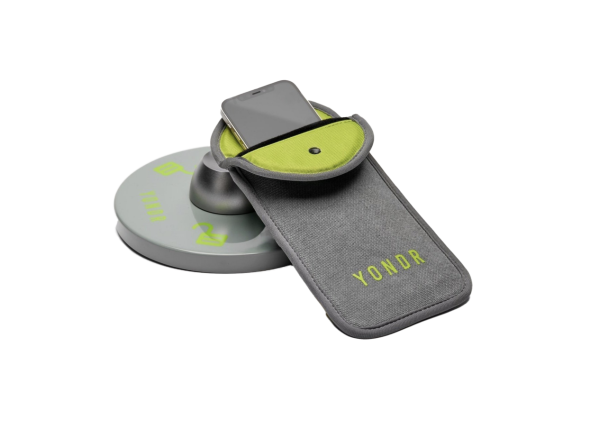
“That 137,000 dollars will be taken out of [our general fund]. That is just a poor use of our scarce resources, and it is also taking away from things that are serious issues around campuses,” Jacob said.
The Yondr pouch proposition is an attempt to take the successful January 2024 policy even further. The policy has been in place for less than a full year, and Archie Williams Assistant Principal Nate Severin believes that the current policy should stay in place longer. He believes more troubleshooting should occur before committing resources to a severe escalation of the policy.
“It seems like we are making the assumption that our current cell phone policy isn’t working, and so we’re [thinking about doing] this new and more restrictive thing, as opposed to looking at what’s not working in this policy and problem solving around this first,” Severin said.
Brown shares a similar opinion, believing that while the idea of the Yondr pouches is admirable, it is logistically unrealistic.
“If you weren’t living this reality that [students and teachers] are living, I can see how [the proposition] might be a good idea to people that are not here, like ‘Lock ‘em up. We gotta save the children.’ But that’s not the reality; that’s going to do more harm than good, and it fosters a sense of distrust,” Brown said. “[The proposition] makes it so that the flexibility is gone and I don’t even want to think about the big [campus safety] emergencies that we were talking about.”
Taupier and the Board of Trustees welcome thoughts and comments from community members through a public comment email address on their website or participation in board meetings. Jacob plans to continue sharing his opinion and encourages fellow students to ensure the district can consider community input in their decisions.
“The district should know that we do want to be better learners, and everybody agrees that we are better learners with the January policy,” Jacob said. “But I think that there’s a limit, and there’s really no stopping the digital era.”





